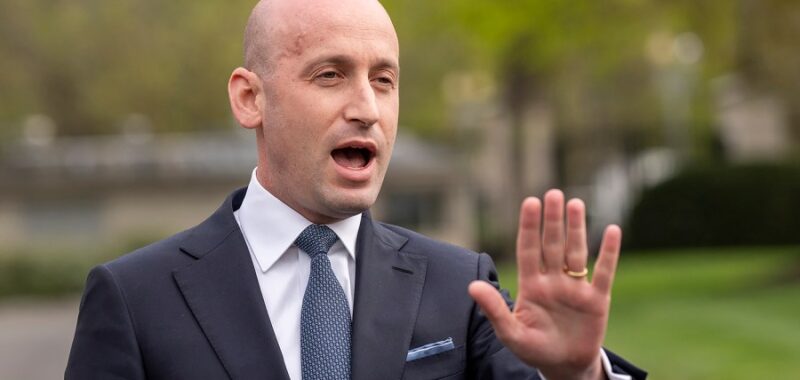
White House deputy chief of staff Stephen Miller said Friday that President Trump and his team are “actively looking at” suspending habeas corpus as part of the administration’s immigration crackdown.
“Well, the Constitution is clear — and that of course is the supreme law of the land — that the privilege of the writ of habeas corpus can be suspended in a time of invasion,” Miller told reporters at the White House.
“So, it’s an option we’re actively looking at. Look, a lot of it depends on whether the courts do the right thing or not.”
A writ of habeas corpus compels authorities to produce an individual they are holding and to justify their confinement.
It’s been a key avenue migrants have used to challenge pending deportations under the Alien Enemies Act, a rarely-used 18th-century power Trump cited to deport Venezuelan nationals he’s accused of being gang members to a notorious megaprison in El Salvador.
It’s also been how recently detained students such as Rümeysa Öztürk and Mahmoud Khalil have challenged their detention.
The Constitution says habeas corpus may not be suspended “unless when in Cases of Rebellion or Invasion the public Safety may require it.”
But like igniting the Alien Enemies Act, suspending habeas corpus would be highly controversial.
The Supreme Court directed migrants to challenge their Alien Enemies Act deportations through habeas corpus, and since then, judges in at least three cases have sided with migrants, determining the Trump administration was improperly using a law meant to address warfare and incursions.
It’s possible judges might have a similar interpretation of efforts to suspend habeas corpus, as challengers would also likely dispute whether the U.S. is currently experiencing rebellion or invasion.
Miller asserted that the Immigration and Nationality Act, passed in 1965, takes away the judicial branch’s jurisdiction over immigration cases and gives the president wide authority to end temporary protective status and other policies.
“The courts aren’t just at war with the executive branch, the courts are at war — these radical, rogue judges — with the legislative branch as well. So all of that will inform the choices the president ultimately makes.”
However, judges routinely weigh the legality of immigration policies, which are often brought by plaintiffs directly affected.
The Trump administration has for months clashed with federal judges as it seeks to aggressively implement its immigration agenda by deporting people, suspending refugee admissions and taking other steps to curb the flow of migrants into the U.S.
Administration officials on March 15 rebuffed an oral order from U.S. District Judge James Boasberg to turn around or halt flights of Venezuelan migrants headed to the Salvadoran prison — teeing up the legal battle that brought the Supreme Court’s ruling on how such cases must proceed.
A federal judge in Massachusetts on Wednesday blocked the Trump administration from deporting a group of migrants overseas, possibly to Libya and Saudi Arabia.
Another federal judge granted bail to Tufts University’s Öztürk on Friday, freeing her from federal immigration custody more than six weeks after the Trump administration revoked her visa and arrested her.
One Democratic aide mocked Miller for suggesting the lifting of a bedrock constitutional principal.
“Stephen Miller is not a lawyer but he plays a s‑‑‑ty one on TV. No one in their right mind would take his advice seriously, but sanity is in short supply in this administration,” the aide said.

